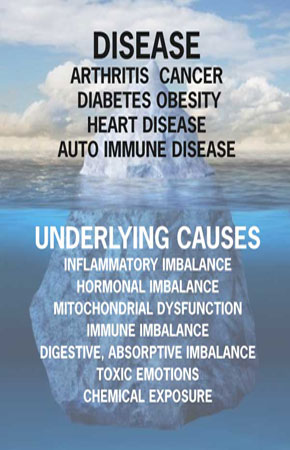The Institute of Functional Medicine teaches practitioners how to assess the patient’s fundamental clinical imbalances through careful history taking, physical examination, and laboratory testing. An understanding of how these imbalances influence body processes, for example; the regulation of hormones, immune function and inflammatory responses, to name a few, allows the practitioner to truly address the understanding causes of disease.
Functional medicine practitioners acknowledge that environmental and lifestyle factors i.e the air you breathe and the water you drink, the particular diet you eat, the quality of the food available to you, your level of physical exercise, and the toxic exposures or traumas you have experienced all affect your health.
Emerging research is showing us too that your DNA is NOT an unchanging blueprint for your life, although individual genes make you more susceptible to some diseases, our genes may be influenced by everything in your environment, as well as your experiences, attitudes, and beliefs. That means it is possible to change the way genes are activated and expressed. This underpins the functional medicine approach to treatment which focuses on diet and lifestyle intervention as a first line approach to treating disease.

